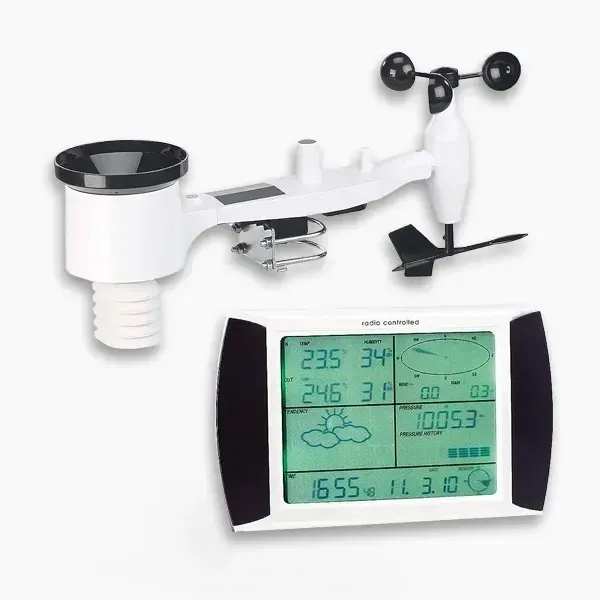Weather Station
Weather Stations
Weather stations are the eyes and ears of meteorology, providing vital data that helps us make informed decisions about our daily lives and the world around us. Whether you're a farmer, pilot, or just a curious individual, weather stations offer valuable insights into the ever-changing weather patterns.
The Importance of Weather Monitoring
Weather's Impact
Weather conditions influence our daily routines, impact agriculture, affect travel plans, and can even save lives when early warnings are issued for severe weather events. Weather stations are at the forefront of gathering this essential information.
Read More
How Weather Stations Work
Weather Sensors
Weather stations are equipped with an array of sensors that measure various meteorological parameters, including temperature, humidity, barometric pressure, wind speed and direction, rainfall, and solar radiation. These sensors collect data from the surrounding environment.
Data Collection and Transmission
The data collected by weather sensors are transmitted to a central unit or logger, where it is processed and recorded. Many modern weather stations also have the capability to transmit this data to online platforms or apps in real-time, making it accessible to anyone with an internet connection.
Types of Weather Stations
Personal Weather Stations
Personal weather stations are designed for enthusiasts and homeowners. They are easy to set up and provide localized weather information for personal use. Many connect to smartphone apps, allowing users to monitor weather conditions from their devices.
Professional Weather Stations
Professional weather stations are used by meteorologists, researchers, and various industries. They are highly accurate and equipped with advanced sensors to provide comprehensive meteorological data. These stations are critical for weather forecasting and research.




